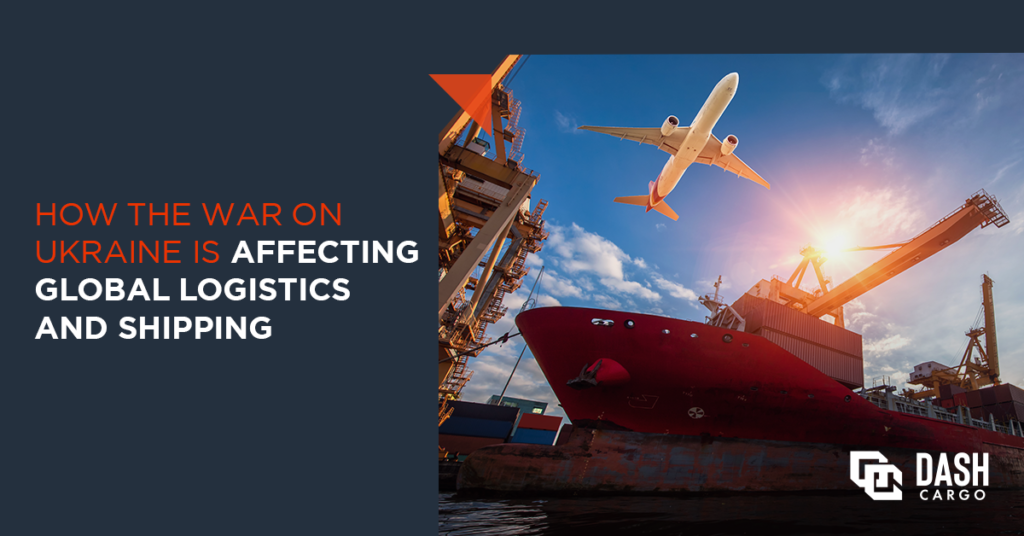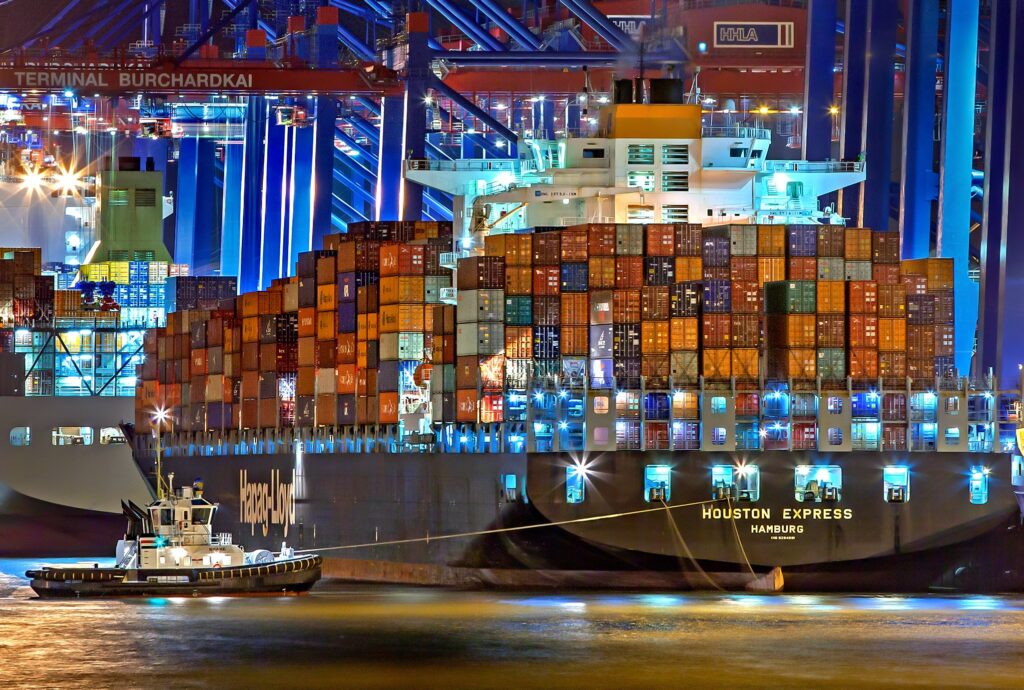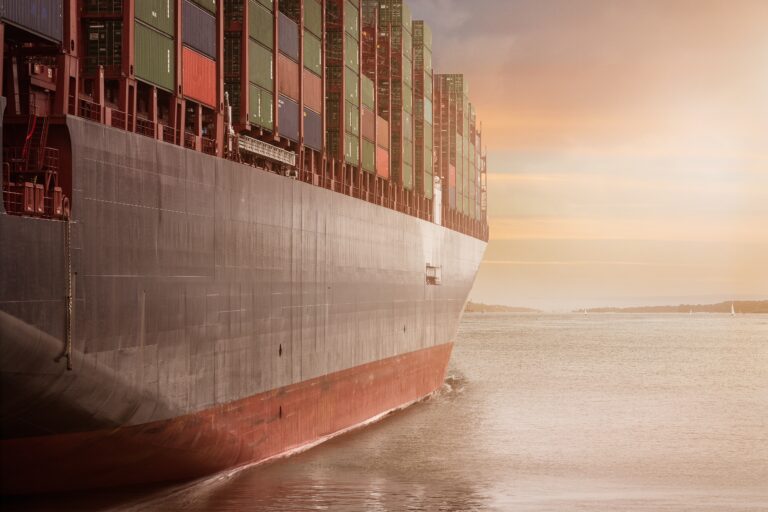
The ongoing Ukraine crisis displays one of the most significant territorial power conflicts. With so many lives claimed and disrupted, this war can be considered one of this generation’s most critical humanitarian disputes. As war rages on, millions of people will constantly be in danger, forcibly displaced, and in fear as they flee the country to find refuge.
Considering Russia’s role as one of the world’s superpowers, their decision to wage war on Ukraine not only caused cataclysmic changes across all industries but also displayed their humanitarian stance and how easy it is to choose power over life.
On a more economic spectrum, the continuing war heavily affects various trade and market sectors, including a global energy crisis, causing great disruptions across different supply chains. Keep reading to know more about the effects of the war on Ukraine on the worldwide supply chain and world economy.
The Effects of the War on Ukraine on Global Logistics and the World Economy

1. Increase in fuel cost
With airlines avoiding Russian territory and closing Ukraine airspace, shipment costs are continuously rising. According to Dylan Alperin, head of professional services at the supply chain software platform in Keelvar, the flying restriction has highly hampered Ukraine war logistics. It canceled many supply flights and eliminated 10 million miles of airspace from international freight routes.
According to Judah Levine, head of research at freight booking specialist Freightos Group, airlines will avoid Russian airspace by using alternate, lengthier routes. It, in turn, will increase fuel costs.
2. Rise of supply and commodity prices
With limited airspace, basic food commodities like grain take longer to reach longer distances, increasing their price. Since 2020, grain prices and shipping costs have been rising, but the conflict in Ukraine has made this trend worse and undone a brief drop in shipping costs.
The cost of transporting dry bulk items like wheat climbed by roughly 60% between February and May 2022. Global consumer food prices would rise by 3.7% due to the escalating grain and freight costs.
3. Delays in production and trading
Russia’s invasion of Ukraine, the accompanying economic sanctions, and other potential Russian responses have adversely impacted global markets. Oil, gas, and different agricultural product prices have increased, putting more pressure on inflation and jeopardizing food security in some developing economies.
As such, market uncertainty has become prevalent as Russian-produced metals, such as aluminum, nickel, palladium, and vanadium—crucial to contemporary manufacturing supply chains—start slowing production and trade.
4. Closure of direct trade routes
Since the war, the European Union (EU) has enacted sets of sanctions, resulting in the closing of EU airspace to Russian aircraft, the exclusion of Russian warships from EU ports, a ban on Russian transport companies, and a prohibition on the export of products and technology related to aviation, shipping, and space.
The sanctions shall reduce Russia’s capacity to support its war effort economically and financially. These have influenced transportation in the EU, causing congestion, supply-chain bottlenecks, and the need to detour from conventional routes. The consequences have delayed travel times, affected Ukraine shipping routes, and raised prices.
5. Container shortage
Due to container shortages and the violence in Ukraine, one-way pickup rates have significantly increased in India, seriously disrupting the peak shipping season. Moreover, US ports are overcrowded due to constant canceled orders and delayed cargo. As such, companies are moving their freight away from the United States West Coast, severely impacting port productivity.
6. Reduced trade
The reduced trade with Russia by the G7 (Canada, France, Germany, Italy, Japan, the United Kingdom, and the United States), Europe, and Australia negatively impacted global commerce.
Global wheat exports increased by 0.2%. Russia, an essential player in wheat markets, allocates additional domestic resources to wheat and produces and exports more wheat.
7. Labor shortages
Apart from alternative materials, businesses need to find more labor. Since the crisis started, Eastern European work has greatly decreased, raising costs.
According to figures from the International Chamber of Shipping (ICS), Russians make up 10.5% (198,123) of the world’s shipping workforce, with Ukraine contributing 76,442 (or 4%). Many corporations are increasingly looking into opportunities in Africa and South America, particularly for labor-intensive applications, moving away from Eastern Europe.
Labor is crucial for sectors like agriculture and farming, as they depend heavily on seasonal foreign labor hired temporarily to harvest crops.
8. Risk management is imperative
Cost, alternative sourcing, logistical disruption, and labor and material shortages suggest that businesses prioritize risk management. The Ukraine crisis made it clear that companies need to increase supply chain visibility since risk usually hides in lower-tier suppliers.
Organizations must clearly understand potential threats to respond and be in unison with new disruptions. The goal of supply chain managers is to fortify their operations—making them more resilient, starting with awareness and readiness.
9. Policy changes in relations with Ukrainian, Russian, and other Belarusian businesses
As a result of the crisis in Ukraine, energy prices have increased, which has impacted businesses throughout the EU. Some companies suffered due to their close economic links with Ukrainian, Russian, or Belarusian enterprises. It caused governments to put policies into place that aid small businesses in overcoming these difficulties.
Additionally, governments place particular policies to encourage industries that offer necessities, most notably the agricultural sector. Here are some of the political measures taken:
● Companies throughout the economy benefit from subsidies, tax breaks, and the abolition of energy-related costs.
● To assist businesses affected by the conflict, either directly or indirectly, the government provides grants and measures, making it easier to access financing.
● The government offers short-time work schemes for businesses that the war has disproportionately hit.
● Another set of policies, including tax breaks and subsidies, targets agricultural companies to guarantee a sufficient food supply.
● The transport industry has received particular attention in a few EU member states.
What Does the Ukrainian War Mean for Us and The Shipping Industry?

Apart from the evident horrific human toll, the conflict in Ukraine seriously disrupted international relations and trade, aggravating COVID-19-related crew issues, supply chain disruption, and port congestion.
The loss of people and boats, the disruption of trade between Russia and Ukraine, and the mounting cost of sanctions have all impacted the shipping industry. Day-to-day operations in the sector are particularly complicated by effects on crews, the price and supply of bunker fuel, and rising cyber risk dangers.
As such, it’s vital to reassess business operations and partnerships to ensure that related factors don’t exacerbate the effects caused by the ongoing war. By selecting professional services that operate and have substantial experience in dealing with recent and forthcoming crises, enterprises can assure themselves of stability as everyone works around the global issue.
Sustaining Business Efforts Amidst Crisis
The current turmoil between Ukraine and Russia not only threatens the boundaries of their territories but also threatens to disrupt civil relations, safety, and the economies of the whole world. However, as unpredictable as the war’s impact is, businesses should stay in operation to not heighten the already destabilizing shipping industry and sour the global economy.
Choosing a partner that will provide expert services is essential to ensure continued business operations and success.
Dash Cargo is a freight forwarding company in the Philippines that offers expert shipping services to secure your cargo and get it anywhere in the world. Our team is prepared to manage your shipments anytime, anywhere. Ready to start? Request a quote today!



